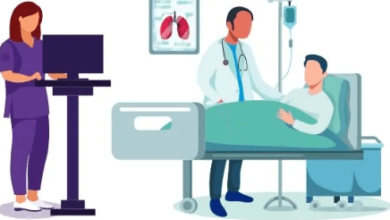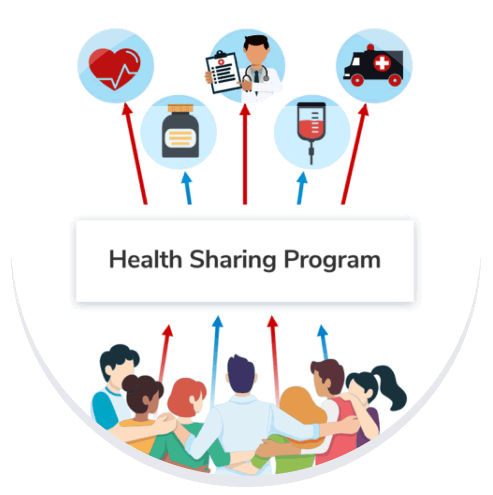6 Essential Physiotherapy Tips for Runners Post-Marathon

After completing a marathon, many runners experience muscle soreness and fatigue, which can benefit significantly from targeted sports physiotherapy. Sports physiotherapy in Edmonton aims to aid in recovery by addressing the specific stresses that long-distance running places on the body. These treatments focus on alleviating pain, promoting muscle repair, and ensuring that runners can return to their training safely and effectively. Sports injury physiotherapy helps maintain the body’s resilience and prepares runners for their next challenge.
Six Key Physiotherapy Strategies for Post-Marathon Recovery
Proper recovery is crucial to ensure that a runner’s body heals effectively and remains healthy for future races. Sports physiotherapy in Edmonton offers five essential tips for runners after completing a marathon:
1. Prioritize Rest and Active Recovery
After a marathon, the body requires time to recuperate, as muscles, joints, and the nervous system have been extensively taxed. Immediate rest is essential, but it doesn’t mean complete inactivity.
- Rest Days: It’s beneficial to take one or two days completely off following the marathon to allow the body to recover from muscle damage and inflammation.
- Low-Intensity Movement: Once rested, engaging in gentle activities like walking, swimming, or cycling helps maintain circulation and aids in reducing muscle soreness and stiffness without overstressing the muscles.
2. Address Muscle Soreness with Foam Rolling:
Delayed Onset Muscle Soreness (DOMS) commonly peaks 24-48 hours post-marathon, resulting from microscopic muscle damage incurred during intense activity. Targeted physiotherapy techniques can alleviate discomfort and prevent prolonged stiffness, aiding in quicker recovery.
- Foam Rolling: Foam rolling helps release muscle tension and can break up adhesions in the fascia (the connective tissue that surrounds muscles). Spending 10-15 minutes each day focusing on major muscle groups—like the quads, hamstrings, calves, and glutes—can ease soreness.
3. Hydration and Nutrition for Recovery
Proper hydration and nutrition are vital for post-marathon recovery. A marathon puts a huge strain on the body’s energy reserves and fluid balance, and replenishing these reserves as quickly as possible is crucial for speeding up recovery.
- Hydrate: Drinking water or sports drinks that contain electrolytes can aid in replacing lost fluids and minerals like sodium, potassium, and magnesium. These electrolytes play a huge role in maintaining muscle function and can help prevent cramps and excessive soreness.
- Eat Nutrient-Dense Foods: A balanced meal with a combination of lean protein, complex carbohydrates, and healthy fats aids in muscle repair and replenishes glycogen stores. Consuming nutrient-dense foods like leafy greens, fruits, nuts, lean meats, and whole grains will give the body the fuel it needs for a full recovery.
4. Address Injuries Early with Targeted Exercises
Marathons can sometimes leave runners with more than just sore muscles. Common marathon-related injuries include runner’s knee, IT band syndrome, shin splints, and plantar fasciitis. Ignoring these minor injuries can lead to chronic problems, so it’s crucial to address them early with physiotherapy techniques that target the underlying causes.
- Strengthening Exercises: Weak or imbalanced muscles often contribute to common running injuries. For example, strengthening the hip muscles can help alleviate knee pain by providing better support to the lower body. Similarly, calf raises, and foot strengthening exercises can help prevent or manage plantar fasciitis.
- Range of Motion Work: Stiffness in the joints, particularly the hips and ankles, can contribute to poor running mechanics and maximize the likelihood of injury. Targeted mobility exercises, such as hip openers or ankle rotations, can help runners regain full range of motion, allowing for a smoother, more efficient stride.
5. Professional Physiotherapy Treatments
For runners dealing with post-marathon soreness or injuries, professional physiotherapy treatments can be invaluable for recovery. These treatments are designed to reduce inflammation, alleviate pain, and promote faster muscle healing. Some of the most effective physiotherapy treatments include:
- Massage Therapy: Sports physiotherapists help to alleviate muscle tightness, reduce stiffness, and promote circulation. This increases the blood flow to muscles, speeding up the removal of metabolic waste and reducing muscle soreness.
- Myofascial Release: This technique targets the fascia, the connective tissue within muscles, to release tension and tightness. Myofascial release is especially beneficial for reducing stiffness in muscles that may have tightened up during the marathon.
- Trigger Point Therapy: Often, marathon runners develop painful knots or trigger points in their muscles. It focuses on these specific areas of tension to relieve pain and restore muscle function.
- Ultrasound Therapy: This treatment utilizes sound waves to promote tissue healing and reduce inflammation. Ultrasound therapy is often used for soft tissue injuries like strains and sprains that may occur during or after a marathon.
- TENS (Transcutaneous Electrical Nerve Stimulation): It uses electrical currents to reduce pain and stimulate muscle recovery. It’s particularly effective for alleviating post-race muscle soreness and stiffness.
6. Gradually Return to Running
After a marathon, it’s tempting to jump back into training to maintain fitness or prepare for the next race. A gradual return to running is a key part of any physiotherapy-based recovery plan.
- Start Slowly: Begin with short, easy runs at a conversational pace. Avoid high-intensity training, such as speed work or long-distance runs, for at least two to three weeks post-race. These high-impact activities place a lot of stress on the muscles and joints, which are still healing.
- Listen to the Body: Monitor how you feel during and after runs. Persistent pain, stiffness, or soreness may indicate the need for more rest or targeted physiotherapy exercises. Avoid running through pain to prevent further injuries.
Read also: How Health Share Can Provide Peace of Mind
Maximizing Post-Marathon Recovery with Physiotherapy Support
Sports physiotherapy in Edmonton aims to help runners in the post-marathon to ensure a full and sustainable recovery. By incorporating rest, hydration, nutrition, and professional treatments like massage and strength training, runners can effectively reduce soreness and lower the risk of injury. A gradual return to running, coupled with paying close attention to the body’s signals, allows for proper healing and long-term performance improvement. Family physiotherapy in Edmonton provides comprehensive support for runners, ensuring they recover safely while preparing for future marathons. Embracing these strategies enhances resilience and promotes ongoing success in running.





